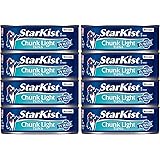Why Everyone’s Ditching Store-Bought Milk for This Almond Cow Hack—And You Should Too!
Ever stared at the back of an almond milk carton and suddenly wondered if you accidentally picked up a chemistry experiment instead of a wholesome beverage? Yeah, me too. For the longest time, I was all about that store-bought almond milk life—thinking I was doing myself a solid with a light, nutty drink. But then came the ingredient label horror show: gums, preservatives, oils, and a bunch of unpronounceables that made me question everything. If you’re like me, someone who’s been on the clean eating grind trying to nix ultra-processed nonsense, this revelation hit hard. So, what’s a health-conscious, no-nonsense person to do? Well, I ditched the carton and found a game-changing way to whip up my own almond milk in just one minute—no soaking, no mess, just pure almond goodness. Curious how I pulled off this magic trick? Let’s dive in. LEARN MORE
If you’ve been following me for a while, you know I’m a huge fan of clean eating and avoiding unnecessary additives in my food. I’ve been on a mission for years to cut out ultra-processed foods and simplify what goes into my body. And let me tell you—almond milk was one of those sneaky “health foods” that wasn’t as clean as it claimed to be.
I’ve always loved almond milk. It’s light, refreshing, and easy on the stomach. But once I started turning those cartons around and reading the ingredient labels—yikes.
What I thought was a simple nut-based beverage turned out to be loaded with gums, preservatives, oils, and other ingredients I couldn’t pronounce. That was my wake-up call.
So I went on a mission to go back to the basics. Real food. Fewer ingredients.
And thanks to one life-changing discovery—I’m making my own almond milk at home in just one minute. Yep, one minute. No soaking. No mess. Just clean, delicious almond milk with two ingredients: almonds and water.
Let me tell you how I got here.

Table of Contents
Why You Should Rethink Store-Bought Almond Milk
It’s easy to assume almond milk from the store is healthy—and to be fair, it can be better than sugary dairy alternatives. But the more I learned, the more I realized that many store-bought almond milks are highly processed.
Most are filled with:
- Thickeners and gums (like carrageenan or gellan gum)
- Preservatives to extend shelf life
- “Natural flavors” (never sure what those are?)
- Added sugars or artificial sweeteners
- Low actual almond content (some brands use as little as 2% almonds)
This isn’t to scare you—just to empower you. Because when you know better, you can do better. And that’s exactly what led me to find a better way.
Nutritional Benefits of Almonds (and Almond Milk!)
Let’s not forget why we love almonds in the first place! These little powerhouses are loaded with healthy fats, vitamin E, plant-based protein, and are a good source of fiber. They support heart health, help balance blood sugar, and provide antioxidant protection.
When you make your own almond milk at home, you’re getting a much more nutrient-dense version than the watered-down, additive-filled cartons from the store. No fillers, no preservatives—just the natural goodness of almonds and water.
Bonus: homemade almond milk is easier on the gut for many women who struggle with digestion or inflammation. You’re skipping all those emulsifiers and gums that can cause bloating or discomfort. Making your own clean version of almond milk can be a great way to improve your gut health!
I Thought Making Almond Milk Would Be Hard… Until I Found Almond Cow
Here’s the thing. I used to assume that making almond milk was a long, messy, intimidating process. Soaking almonds overnight, blending, straining through a nut milk bag… I mean, who has time for that?
But then I found the Almond Cow—and my whole perspective changed.
This machine is a total game-changer. You throw in your almonds (no soaking required!), add water, press a button—and in under one minute, you’ve got fresh, creamy almond milk. I was like “What”? I was seriously amazed!! It’s too simple!
It makes about 5-6 cups per batch, stays fresh in the fridge for 5 to 6 days, and tastes amazing. It’s pure, light, and has that real nutty flavor you just can’t get from a carton.
Besides almond milk, you can make any type of nut milk. I make pistachio milk often also because my family likes it in iced lattes- it’s decadent.
For all my nut milks, I add a little vanilla and monk fruit sweetener and store it in the glass jar I received with the Almond Cow.
How To Make Almond Milk Using the Almond Cow – Step-by-Step
Making almond milk with the Almond Cow is as simple as it gets. No soaking, no straining, no mess.
Here’s how it works:
1. Add Almonds to the Filter Basket
- Measure 1 cup of raw almonds and place them inside the metal filter basket.
- Secure the basket to the top of the machine.
2. Fill the Base with Water
- Pour 5–6 cups of filtered water into the base of the Almond Cow (there’s a fill line for reference).
- Optional: Add a pinch of sea salt or a splash of vanilla extract to the water if you like your milk with a little flavor.
3. Attach the Top and Plug It In
- Twist the top blade attachment into the base.
- Plug in the machine—you’re ready to go!
4. Press the Button
- Press the cow icon on the front of the machine. It will run for just about 1 minute.
- You’ll hear a few cycles as it blends and extracts the milk.
Enjoy Your Fresh Almond Milk!
- Once it’s done, pour the milk into a glass jar or container and refrigerate.
- Store in the fridge for up to 5-6 days.
Use or Save the Pulp
- Scoop out the leftover almond pulp and use it. See my suggestions below.
How I Use Homemade Almond Milk In My Everyday Life
I keep a batch of homemade almond milk in my fridge at all times now. It’s become a staple in so many of my daily habits:
Honestly, once you taste the difference, you’ll never want to go back.
Bonus: What To Do With The Leftover Almond Pulp
One thing I love about the Almond Cow is that nothing goes to waste. After making your almond milk, you’re left with almond pulp. You can throw it away or you can use it for other uses.
Here are a few of my go-to ideas:
- Add it to smoothies for extra fiber
- Mix into oatmeal or yogurt bowls
- Use in homemade granola or energy bites
- Blend into baked goods like muffins or cookies
- Or dry it out and turn it into almond flour
It’s part of my “no-waste, real food” philosophy—and it feels so good to use every part of the nut.
Why This One Small Change Matters
I know it might sound small, but switching to homemade almond milk is one of those little things that adds up. It’s one less ultra-processed food in your life. One more way to nourish your body with real ingredients; it takes one minute to make; and one empowering step toward taking control of your health.
Have you tried making your own almond milk? Or are you curious about the Almond Cow? Let me know in the comments—I’d love to hear from you!




















Post Comment